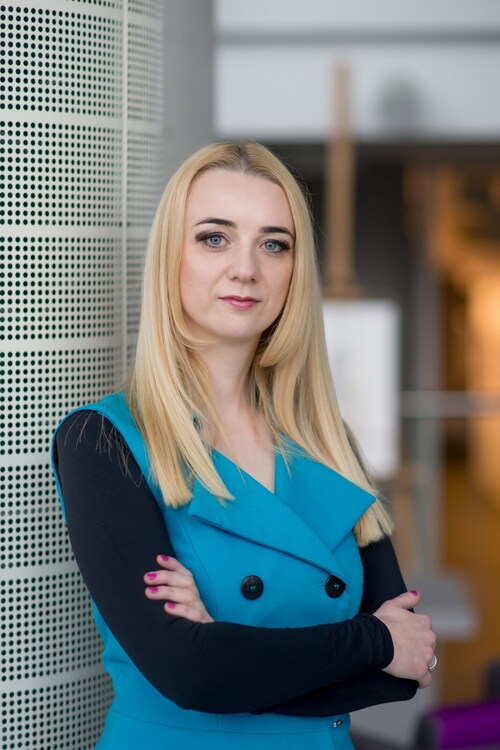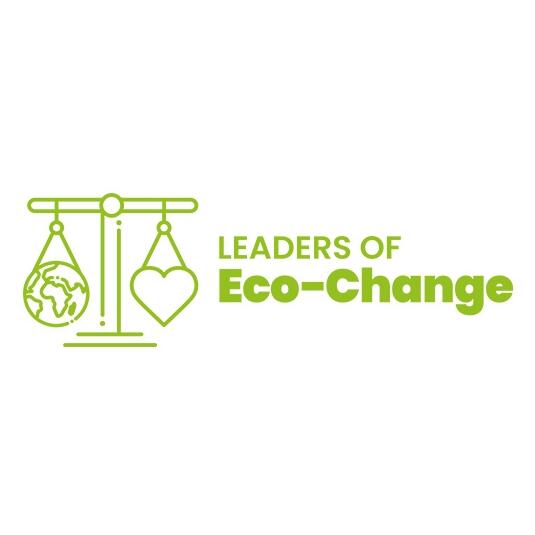
Dr. Eliza Szadkowska is the leading coordinator of the Leaders of Eco-Change project and we have asked her some questions about the project goals and content. More information about the project can be found here: https://wsfiz.edu.pl/en/project-leaders-of-eco-change/
1)Can you explain what the project is aiming at?
The main goal of the project is to create the first Academic Center for Practical Education on Ecology in our country for students of economics, finance, management and administration.
We want to create a special education and practice program that stimulates ecological empathy and teaches how to properly manage local natural resources. For other educators of sustainable development, we want to create a Handbook on methods and practical activities stimulating students to change their behavior to pro-ecological.2) Who are the main partners and stakeholders in this project?
The Association Friends of the Knyszyn Forest - Great Forest has been operating for over a dozen years at the Knyszyn Forest Landscape Park located in the area of the agglomeration of the city of Bialystok. It is one of the largest and most biodiverse forest complexes in Poland. The Great Forest Association carries out the mission of active nature protection and education of various groups of the local community about the care and proper management of this extremely valuable natural and cultural area. The association operates non-profit continuously, realizing its mission and cooperation with institutions nature, forest districts and local government administration.
The University of Finance and Management in Białystok is the oldest non-public business university in the region with potential and experience in educating finance, management and administration staff, who will coordinate the Ecological Empathy course.
The FCIS Center for Social Initiatives Foundation has the mission of respecting human and civil rights and promoting sustainable development and the knowledge-based society. It initiates and supports innovative solutions in the protection of law and in the development of civil society. He has 12 years of experience in monitoring and civic participation, therefore he will lead the Student Alert for Mother Earth - civic monitoring practice in ecology.
Innovation Circle Network is an expert for us who will bring his experience and knowledge about sustainable development in various regions and cities of the European Economic Area, including Norway, which will allow us to create a chapter in the Handbook devoted to international good practices in ecology in various aspects. We hope that we will continue our cooperation started in this project and that we will carry out our joint mission after the completion of the schedule of planned activities.3) How do you plan to involve students in the project?
Project participants will be able to choose two paths to follow together with us and the invited experts:
- blue path - eco-participation, eco-volunteering, eco-mediation, eco-influencer (social-media, photography, nature protection and ecology films) course
- green path - ecology course and direct inclusion in the practice in the Knyszyn Forest Landscape Park, Ecological Empathy Science Club, Civic Monitoring in Ecology and in the professional Eco-Influencer Film Studio.
In addition to classes on Ecological Empathy, we will organize two large open events for the community of the entire region: the 1st Plogging Championship - a run combined with a happening and the Festival for Mother Earth, an open event where various local ecological products, film screenings, and workshops with experts from ZERO WASTE will be presented. , tree protection, eco cooking, eco cleaning, eco tourism, etc.
We will encourage participants to take part in the green path - it will allow the student to obtain the Ecology Credibility Certificate and to enter the acquired skills into his or her supplement to the higher education diploma.4) Why did you decide to work with the Innovation Circle Network to implement this project?
ICN - is an international association operating since 2007 for the benefit of smaller and medium-sized places in Europe and the world, with the aim of making such places sustainable and more attractive. It connects 11 different countries of the Baltic Sea Region.
ICN has extensive experience working with various international actors to reinforce the focus on climate-friendly energy, transport and industry, including green mobility solutions. We know that ICN implements educational projects, such as the Innovation Circle Project, Young Eyes Project, international camps for young people and regular annual international conferences on sustainable development in the Baltic Sea Region.
Cooperation with ICN will allow to strengthen transnational cooperation and increase the awareness of the project recipients about ecological practices in other regions and cities of Europe, and the implementation of policies based on cultural diversity. The network will allow for a broad context of internships in other Baltic countries and contact with decision-makers, specialists, business people, volunteers and young people from different countries. ICN will bring its experience and expertise in the development of the Tool Manual for Science Educators. We believe that thanks to the support of ICN experts, we will achieve better results of our activities.5) How do you see the wider ecological impact of this project?
Project activities, local activities, including the activities of each of us, have an impact on the implementation of the sustainable development goals.
The problem we diagnose concerns the progressive degradation of the natural resources of our region at the expense of economic development. We checked that this is the effect of the low knowledge and environmental sensitivity of the inhabitants, the so-called pro-ecological attitudes. There are no forms of education about the proper management of natural resources, which means that citizens are involved in ecological activities in their surroundings to a small extent. The Strategic Diagnosis of the Podlaskie Voivodeship from 2020 indicates that our community has a growing sense of individual impact on the environment. However, the pro-ecological declarations made by the inhabitants of the region are mainly motivated by economic reasons, and the desire to save. There is no culture (customs) of the so-called ZERO WASTE; environmental friendliness in purchasing and resource conservation remain marginal. The problem of local government authorities is making decisions regarding spatial development and infrastructure, especially in the agglomeration, which is why social conflicts often arise. The participation of residents in the conducted social consultations on landscape and nature is the lowest in the country, as is the participation in social activities and eco volunteering. In local companies and institutions, conducting ecological programs is negligible. This was confirmed by a survey conducted on 170 participants of the project. As many as 146 respondents do not participate in environmental consultations and do not know how to do it effectively; as many as 124 need practical skills in the field of responsible purchasing and saving resources, as many as 80 people would like to increase their knowledge on recycling and 75 on energy and water saving; more than half of the participants need a workshop on waste segregation and protection of nature resources.That is why the Eco-Change Leaders project responds to the needs of the recipients and is in line with the main strategic goals of the region: creating environmental awareness through environmental education, including shaping awareness, arousing people's interest in interrelated economic, social, political and environmental issues, enabling the acquisition of knowledge and skills necessary to improve the condition of the natural environment, including the creation of new patterns of pro-ecological conduct (including wise consumption).
We can still ask ourselves: what is more important on the scale of our lives - is it a quick and easy development of virtual financial capital, or our future in health and climate security and the future of our children?
We can still ask ourselves: what is more important on the scale of our lives - is it a quick and easy development of virtual financial capital, or our future in health and climate security and the future of our children?

